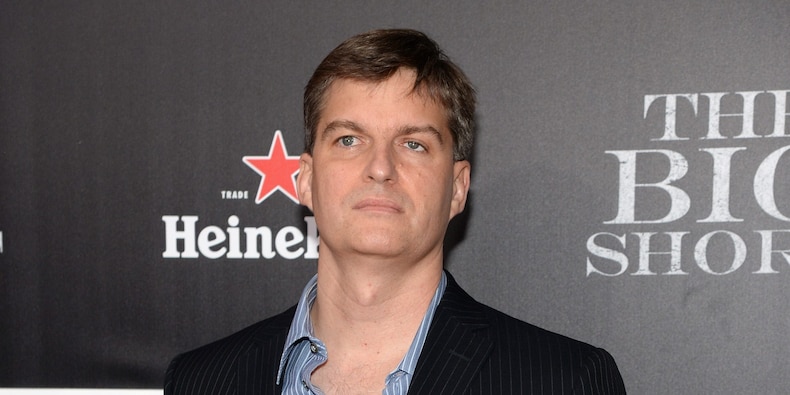
Photo by Kevin Mazur/WireImage
- Michael Burry cautioned investors against getting too infatuated with specific stocks in a Thursday tweet.
- “The Big Short” investor pointed to Iomega, a disk-drive maker that saw a spectacular rise and fall in the 1990s.
- Burry likely sees parallels between Iomega’s cult following and the hype around GameStop and other stocks.
Michael Burry, whose billion-dollar bet against the US housing bubble was immortalized in Michael Lewis’ book “The Big Short,” issued a fresh warning on Thursday to people feverishly speculating on stocks.
“How many current $stonck market fans lived #Iomega?” the Scion Asset Management boss asked in a now-deleted tweet. “Some of us older folk have a few ‘been there, done that’ badges that are fairly relevant about now.”
The investor linked to a cautionary tale on Substack about Iomega, a disk-drive maker that once inspired the kind of mania affecting stocks such as GameStop, AMC, and BlackBerry this week.
Burry’s firm disclosed a stake in GameStop and called for changes at the video-game retailer in 2019, arguably laying the groundwork for the stock to explode as much as 1,700% this month.
Iomega’s stock skyrocketed 2,135% in a single year, lifting its market capitalization to almost $7 billion, investor Aaron Edelheit wrote in his Substack newsletter.
The business attracted cult followers who labeled themselves “Iomegans,” trashed any critics of their beloved company, and embraced the stock as their investing identity.
However, Iomega shares plummeted in 1996, and the company was eventually sold for $218 million to EMC in 2008.
“Iomega was an early preview of how ridiculous investors would become in the Internet bubble,” Edelheit wrote.
The episode demonstrates how a stock lover can “lose sight of the fundamentals and simply become a cheerleader,” dismissing naysayers and never challenging their own viewpoint, he continued.
“How rigid you are in your investing identity matters,” Edelheit added. “This holds as much danger for investors now as it did for Iomegans.”
Burry probably flagged the story because he sees parallels between the intense passion and blind faith in certain stocks on online forums such as Wall Street Bets, and the irrational exuberance around technology stocks before the dot-com bubble burst.













